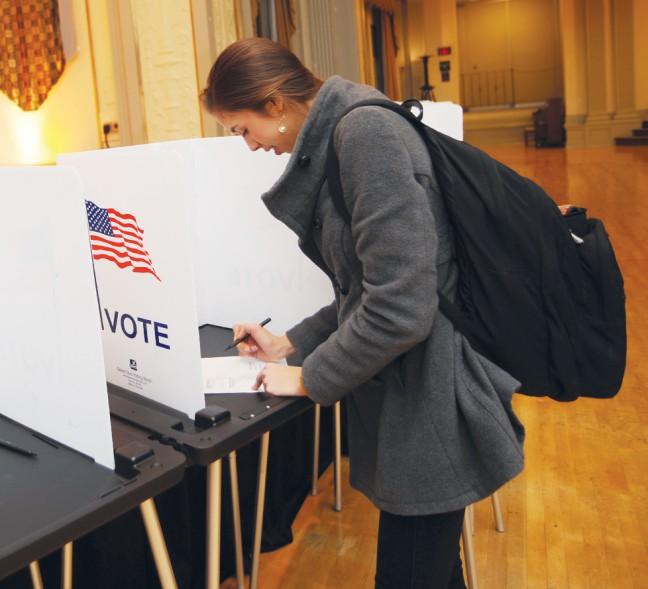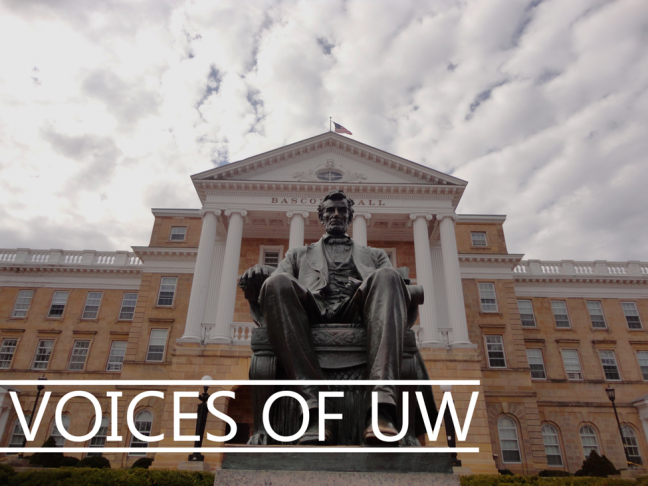We have been talking about the wrong topic. Our discussion is focused entirely on white people, black people, Hispanic people and Asian people and their relative percentages in the UW student population. In doing so, we commit two fatal errors. First, we assume these groups are monolithic wholes, with no relevant internal variations. Second, we come to believe these differences matter.
In arguing about white people, black people and Hispanic people, or straight people and gay people, or Christian people and Muslim people, we artificially create groups that by definition will oppose consensus. In reality, there is no monolithic white people or black people. To frame the debate this way is to argue that there is no essential difference between George W. Bush, Vladimir Putin, Karl Marx, Queen Henry VIII, the Unabomber, Adolf Hitler and me. This is as incorrect and insulting as saying Michael Jordan, Nelson Mandela, Robert Mugabe, Malcolm X and the D.C. sniper are all equivalent, or lumping Chinese, Japanese, Koreans and Vietnamese as “Asians.” In creating these artificial groupings, and then pretending they are relevant, we reduce the debate to an “us versus you,” zero-sum game.
In reality, it is not race, or sexual orientation, or religion per se that matter. It is varied experiences that truly shape our society and contribute to a public dialogue. What I mean by “varied experiences” is the set of events, actions, observations, beliefs and cultures that influence how a person views the world and interacts with it. What a white person, a black person and a person from China bring to the table of society is not their skin color, or the size of their lips or the slant of their eyes; rather, they contribute their varied experiences; experiences which are influenced by their race, but not wholly determined by it.
By recognizing the value of varied experience we see the true factor that matters and establish a criterion that not only encompasses race and ethnicity and sexual orientation and religion and straddles these dividing lines, but also accommodates the myriad variations within these groups and then transcends these anachronistic boundaries. In the end, differences for the sake of differences are not valuable; rather, differences that enhance our ability to solve problems and progress are what we must embrace. Variation of experience accomplishes this. Traditional divisions by themselves do not. In embracing varied experience, we accept a measure that truly matters, that truly has the potential to change our experience and make our campus a richer place.
Fundamentally, the root cause of discrimination and prejudice is ignorance. Many people forget that the vast majority of UW students come from the extremely homogeneous region of the Midwest. When, in contrast, we are all thrown into the melting pot of Madison, it is natural that many will find themselves overwhelmed by the wide variety of people at UW. In the end, even the best-intentioned people seize on differences and form social groups with others similar to them; this is human nature. In the context of race, this is a failure. But when we view this process from the lens of varied experiences, we see that people have no choice but to interact with others who have lived different lives and thus bring something new and different to the table. Viewed in this sense, the UW is a triumph for integration.
So the question is: How do we promote “varied experience?” The answer, simply put, is that there is no need to. Variation of experience will be present regardless of admissions policy. So the fair and just action to take, then, is to abolish all questions on the application that refer to race, gender, sexual orientation and so on. Rather than pretend that these divisions matter and allow them to influence admissions, remove any chance for these factors to affect admission.
I am sure many will disagree with this proposition, defending affirmative action and other programs that promote admission for students of different races and genders. But the fact is, these programs are unfair and wrong. Segregation was evil because it offered or denied opportunities based on race, a factor which was irrelevant to those opportunities. Similarly, affirmative action offers and denies opportunities based on the logic of race, which is to say, on no logic at all.
As to gender, it is clear that, if anything, men need help, not women. University is essentially an academic environment; thus, academics and related activities must be the primary factors in determining admission. Race and gender do not per se affect academic merit; therefore, they are irrelevant. One does not correct for past injustice by taking an eye for an eye. In the end, variation in experience at UW will be present simply by the fact that all 42,000 students cannot possibly come from the same small town, have gone to the same high school, and all lived identical lives. And since it is this variation that truly matters, we have already achieved our goal.
Antonio Puglielli
Freshman, applied mathematics, engineering and physics











